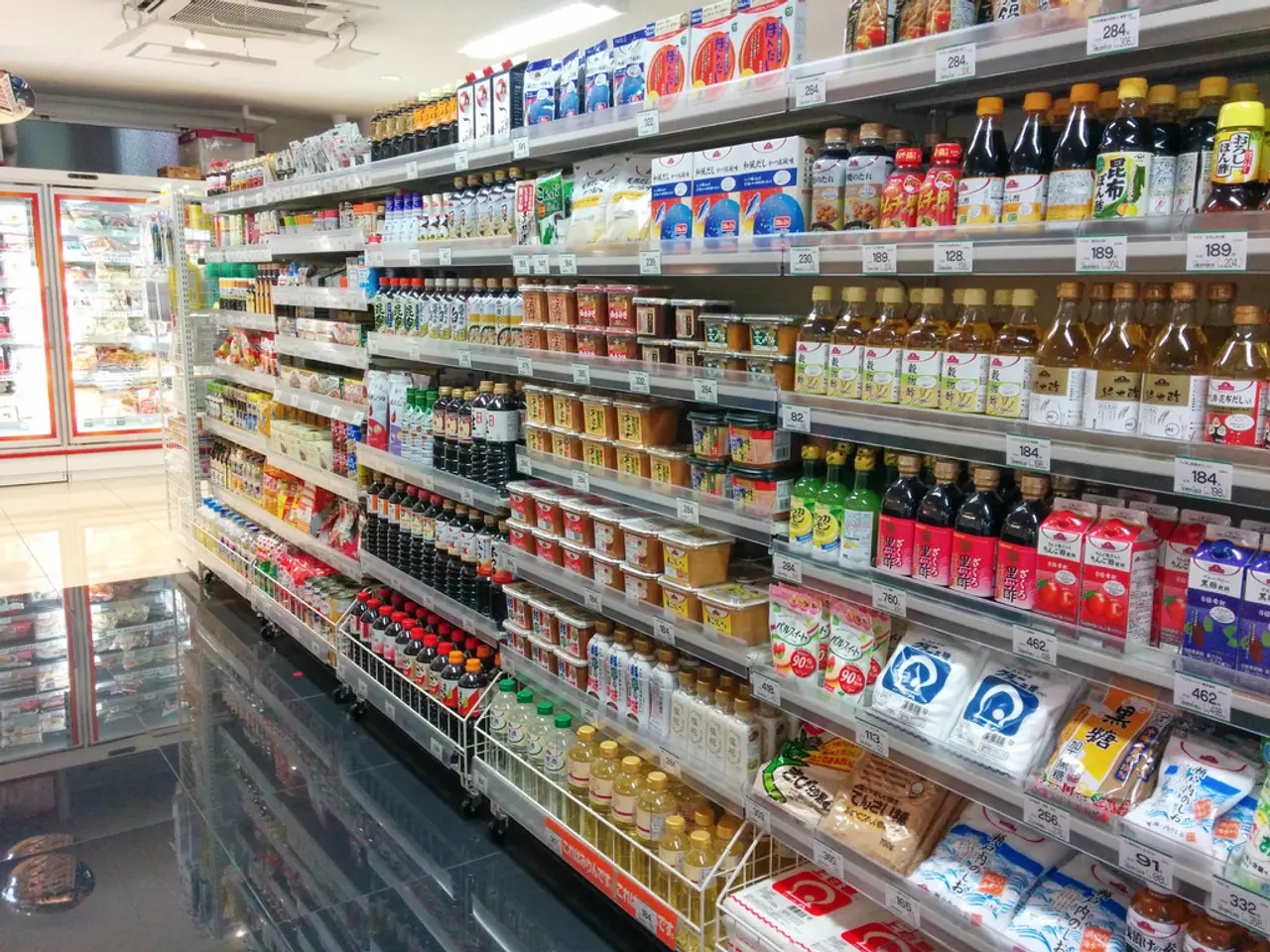Approximately one-third of German companies to institute job cuts, affecting 2025 individuals by 2025.
In a recent semi-annual business climate survey, more than 2,000 companies in Germany revealed their economic outlook for the year ahead. The survey, conducted in March and April, painted a grim picture, with more than every third company planning to cut jobs and a significant decline in investment expectations.
The uncertainty and risk for the German economy in 2025 have been introduced by recent developments in US-EU trade relations. The looming threat of new or increased US tariffs on EU goods has cast a shadow over German exports, particularly to the US, which is the country's most important export destination.
According to forecasts by Bruegel, a Brussels-based think tank, if the US imposes tariffs on imports from the European Union, the EU could lose 0.3% of its gross domestic product, while the US could see a larger hit of 0.7%. The proposed US measures include a 25% tariff on automobiles and car parts, and a 50% tariff on steel and aluminum exports, sectors that account for a large share of German industrial output.
The German government, along with the broader EU, is actively seeking carve-outs and exemptions from new tariffs, particularly for critical industries such as automobiles and advanced manufacturing. To create leverage in negotiations and protect domestic industries, the EU has launched a public consultation on potential countermeasures, which could include tariffs on US imports such as aircraft, automobiles, medical devices, IT equipment, and industrial machinery.
The German government may also advocate for the easing of certain EU regulations that the US perceives as trade barriers to facilitate a trade deal and reduce the need for punitive tariffs. Targeted support for industries most affected by tariffs, such as automotive, steel, and aluminum, could include subsidies, export promotion, and research and development incentives.
Reducing dependency on the US market by seeking new export destinations could help mitigate risk. This includes strengthening trade ties with emerging markets and other industrialized nations.
The impact of US tariffs will vary across German federal states, depending on their industrial composition and export profiles. States with strong automotive and manufacturing sectors are likely to be hardest hit. The high costs associated with tariffs are also contributing to the job cuts and reduced investment in German companies.
In the service sector, there are currently more optimists than pessimists. However, around 35 percent of German companies plan to reduce employment by 2025, according to a Reuters survey. The job cuts are seen as a response to the weak economic situation in Germany.
IW chief economist Michael Grömling states that the trade war is putting a huge strain on daily business in Germany. The new German government must act in close coordination with the EU to provide stability to companies in these uncertain times.
DHL, the logistics giant, is cutting thousands of jobs in Germany due to a sharp drop in profits last year and another significant decline in the mail business in 2024. The losses to Germany's economic output from the US tariffs announced on April 2 could amount to around 200 billion euros over four years, according to IW.
In a positive development, the proportion of companies that want to create more jobs has risen from 17 to 24 percent. The proportion of companies expecting higher investment has also increased from 23 to 28 percent.
Netflix is fully embracing AI technology in its productions, signalling a potential shift in the entertainment industry.
In conclusion, the German government's response to the US tariffs will likely focus on a combination of negotiation, retaliatory measures, sectoral support, and market diversification to mitigate the impact on the German economy.
The economic and monetary union, particularly Germany, faces a challenging year ahead due to political developments in US-EU trade relations, with finance and business sectors braced for potential job cuts and reduced investments. The uncertainty surrounding US tariffs on EU goods is largely due to the looming threat on German exports, a significant part of its general-news landscape.




